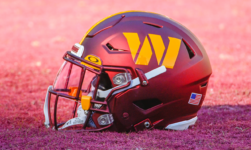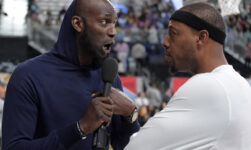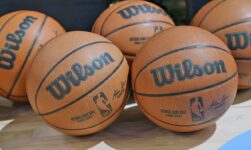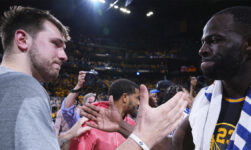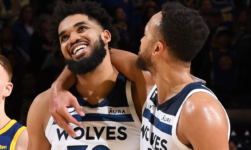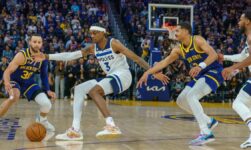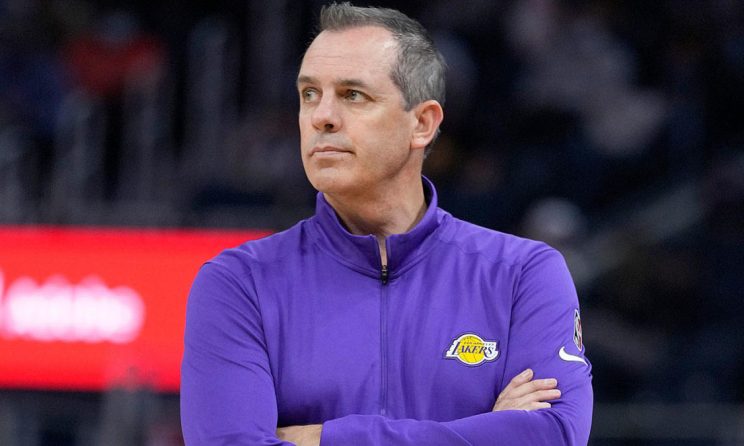
Luke Walton’s firing was almost inevitable. The Sacramento Kings have missed the playoffs 15 years in a row and is now on their 11th coach in that span. Monte McNair didn’t hire Walton, but he oversaw many of Walton’s failures both tactically and within his locker room. He was the obvious first NBA coach to be fired of the 2021-22 season.
There isn’t an obvious second. Of the other nine teams currently outside of the play-in picture, six have coaches in their first two seasons, and two of the others have coaches who have won championships for their current employer. There has been no substantial reporting regarding specific coaches who are in danger, nor are their any clear situations in which a coach and his top basketball executive don’t fit. We could all predict who the first coach to be fired would be because he deserved to be fired based on what had happened over the course of multiple seasons. The next coach who gets fired will lose his job because of what happens this season, and it’s still so new that making any firm predictions would be impossible.
Even if we can’t figure out exactly who’s coming next, we can at least speculate about who’s under pressure. Three coaches stand out as obvious hot seat choices now that Walton has been fired.
Please check the opt-in box to acknowledge that you would like to subscribe.
Thanks for signing up!
Keep an eye on your inbox.
Sorry!
There was an error processing your subscription.
Casey fits the traditional profile of a coach on the hot seat. Detroit is now in its third season as a lottery team having won exactly 20 games in back-to-back seasons. He was not hired by top basketball executive Troy Weaver, and while he extended his contract in the offseason to take him through the 2023-24 season, the extension added only a single year to his deal. These are factors that often work against coaches, and Casey’s seat is probably therefore a bit hotter than he’d like, but there’s a very clear separation between the top two coaches on this list and the field. Casey, for now, is just at the top of the next tier down.
Casey might be losing, but that’s the expectation in Detroit. The Pistons made a calculated decision to rebuild. Thus far, the returns are promising. Detroit is developing a number of young players who look like future starters. That is more important than immediate results, and even if a one-year extension doesn’t exactly scream vote of confidence, Casey was able to negotiate a hefty salary of $7 million annually when he joined the Pistons in part because he was coming off a Coach of the Year campaign in Toronto. Few teams would be eager to pay off that salary to hire a new coach mid-rebuild, but the famously stretch-provision happy Pistons are likely especially reticent. They are paying more than $40 million this season to players not currently on their roster.
Eventually, the Pistons are going to have to start winning. We’re just not all that close to that point yet, so while Casey probably has the NBA’s third-hottest seat, that says quite a bit more about the job security of his counterparts than his own. In truth, the next two coaches are in substantially more danger.
The 2021-22 Rockets, thus far, are making a serious play for the title of worst team in NBA history. Their 1-15 record gives them a winning percentage of 6.3. Over a full season, the worst winning percentage in league history is 10.6, belonging to the 2011-12 Charlotte Bobcats (7-59). The Rockets are probably going to catch them, but that’s hardly an accomplishment. Their minus-10.5 net rating is the second worst any NBA team has produced since those Bobcats, with only last season’s Thunder topping them at minus-10.6.
It goes without saying that anyone coaching a team that is playing so poorly is at risk. Seven of the nine worst teams in NBA history changed coaches in the following season, but Silas, on paper, looks a bit like Brett Brown. No coach in NBA history has retained their job with a worse record than Brown’s 10-72 mark during the 2015-16 season, but he had the advantage of a lengthy rebuild in which his team was making no effort whatsoever to win games in the short term. Silas can argue that the Rockets aren’t, either. After all, nearly 35 percent of its payroll is currently sitting at home. John Wall would likely make the Rockets a good deal better. But Houston hasn’t eschewed win-now moves as aggressively as Philadelphia did. It paid Daniel Theis $35 million this offseason and Christian Wood $41 million last. Eric Gordon is still playing real minutes. The Rockets want to be bad. They probably don’t want to be this bad, and the fact that they are might give them some pause about Silas as their long-term leader.
Silas is in only the second year of a four-year contract, but it’s worth noting that one of the finalists for the job when he was hired was John Lucas II. He is now an assistant on Silas’ staff. That gives Houston another coach that it likes already in the building, and the advantage of firing Silas mid-season is that it would give the Rockets the chance to audition Lucas in real games.
Time is Silas’ best friend right now. Winning won’t be a major priority in Houston for years so there’s just no immediate reason to pay two coaches unless the Rockets genuinely feel that Silas is impeding the development of their young players. That doesn’t appear to be the case yet. There’s no telling how long the Rockets will be able to stand this historic losing, but when losing is the plan, coaches tend to be able to sustain a lot of it before losing their jobs.
It was less than a decade ago that the Los Angeles Lakers fired Mike Brown only five games into the 2012-13 season. This is not a patient franchise. They’ve burned through three full-time coaches since, and even though their fourth, Frank Vogel, has won a championship, the franchise hasn’t exactly gone out of its way to express confidence in him. The deal he initially signed in Los Angeles was only for three seasons. It was not extended in the immediate aftermath of the 2020 championship. Instead, he extended in the 2021 offseason, but reports indicated that he only got one new season tacked onto his contract. That means his contract is set to expire after next season. This is notable in comparison to Casey, whose original deal was longer at five years than Vogel’s even with the extension added on.
Vogel was not the first choice to coach the Lakers when he was hired in 2019. Ty Lue was, but unlike Vogel, he was unwilling to accept a three-year deal. It worked out because of the roster Vogel was given. With a number of strong defenders at every position, he was able to build a contending team around the sort of elite defenses he was known for in Indiana. Most of those defenders are now gone, though, and Vogel is clearly struggling to adjust to a roster designed to win through offense.
Those struggles are most visible in his rotations. DeAndre Jordan has started 11 of the Lakers’ 18 games, but his presence severely cramps the floor for a team that is already using one non-shooter, Russell Westbrook, in the backcourt. Vogel has frequently played the non-shooting duo of Westbrook and Rajon Rondo together this season despite frequently being outscored during their minutes. He hasn’t staggered Westbrook and LeBron James as frequently as most coaches, and that came to a head in Friday’s loss to Boston when his three best ball-handlers in James, Westbrook and Talen Horton-Tucker were all somehow on the bench at the same time for an ugly stretch.
Vogel doesn’t have anything close to an optimal roster to work with, but he does have a talented one. Even with James nursing injuries, a team with Westbrook and Anthony Davis shouldn’t be only .500 after 18 games against mostly lottery opponents. The Lakers rank 24th in net rating thus far this season, and Vogel’s defense has slipped from No. 1 all the way to No. 20 this season. This season has gone about as poorly as possible thus far for the Lakers.
That doesn’t mean they won’t turn it around. LeBron’s 2010-11 Miami Heat started 9-8 and his 2014-15 Cleveland Cavaliers were 19-20. Both made the Finals … but both dealt with coaching turmoil. James reportedly lobbied for Pat Riley to take over the Heat during those early struggles, and David Blatt ultimately lost his job to Lue in 2016. Coaches tend to be blamed when James teams struggle. Just ask Walton, who was only coaching the Kings because he couldn’t cut it with James in Los Angeles.
Vogel has proven he can. He won a freaking championship. But the Lakers had messy breakups with both Phil Jackson and Pat Riley. This is not an organization that’s going to sit on its laurels. If the Lakers believe that Vogel isn’t the coach to lead them to the 2022 championship, the 2020 championship isn’t going to save him.

